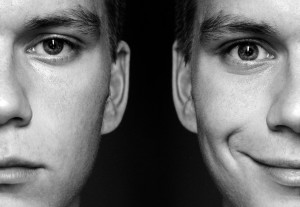Bipolar
 Bipolar disorder is a commonly known disorder, but not a commonly understood one. The term “bipolar” is often used loosely in our culture to describe anyone who is unpredictable or prone to extremes. This is an inappropriate use of this term as bipolar is a complex, multifaceted condition that deeply affects the lives of those who possess it but does not undermine their value. Bipolar is frequently misunderstood as many other mental and personality disorders can resemble its traits. Knowing how to identify bipolar disorder takes a certain level of knowledge and education.
Bipolar disorder is a commonly known disorder, but not a commonly understood one. The term “bipolar” is often used loosely in our culture to describe anyone who is unpredictable or prone to extremes. This is an inappropriate use of this term as bipolar is a complex, multifaceted condition that deeply affects the lives of those who possess it but does not undermine their value. Bipolar is frequently misunderstood as many other mental and personality disorders can resemble its traits. Knowing how to identify bipolar disorder takes a certain level of knowledge and education.
Bipolar disorder is characterized as the shifting back and forth between two different extremes of mood and disposition. A bipolar person will be very up and energetic for a time, then will crash into a very lethargic, depressed state. The upside of bipolar is referred to as mania. Mania is characterized by excessive confidence, intense energy, delusional thinking and impulsive behavior. During mania, a person thinks they are invincible and acts accordingly. This typically lasts for a matter of days or weeks, then the cycle reverses itself.
The downside of bipolar is known simply as depression. During a depressive state, a bipolar person feels like their life force has been sucked out of them. They are very lethargic, with little energy to be at all effective. They feel defeated, stuck, incapable and doomed. Their high functioning abilities leave them and they keep to themselves, showing very little connectivity to those around them. This state shows all the usual characteristics of the disorder depression.
Bipolar is a difficult thing to live with, but there is hope. Many people with bipolar receive treatment, take it seriously and learn to manage their symptoms enough that they can lead successful, functional lives. Medication and counseling are the most common forms of treatment for bipolar, and have proven to be the most successful in helping a person recover. Other forms of treatment include self help, support groups, meditation, inpatient treatment and Canadian rehabs. If you believe that you or someone you care about is struggling with bipolar disorder, seek help today.